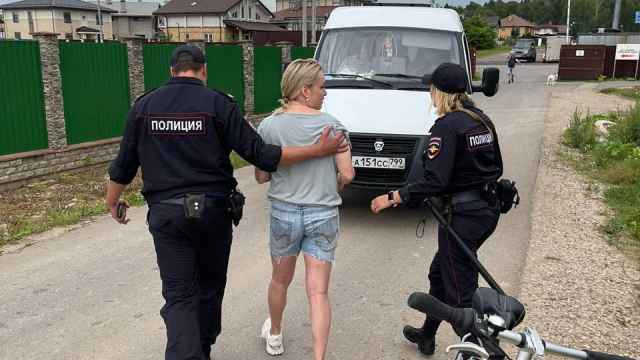At least four prominent Kremlin critics outside of Russia have experienced symptoms of poisoning or faced surveillance over the past year, according to a report by the investigative outlet Agentstvo published Tuesday.
Among those affected in the cases examined by Agentstvo include foreign journalists, Russian opposition activists, and even a former U.S. ambassador.
One suspected poisoning victim is Natalya Arno, head of the Free Russia Foundation. Arno's acquaintances said that she began showing symptoms of poisoning during a trip to Prague in early May.
Before flying to Prague, Arno had attended an event in Germany organized by exiled Russian businessman and Kremlin critic Mikhail Khodorkovsky, where an unnamed journalist also experienced symptoms consistent with poisoning, according to Agentstvo.
After returning from her trip to the United States — where she has lived for the past several years — Arno sought medical treatment and even contacted the FBI, which allegedly launched an investigation into the incident.
Sources told Agentstvo that the suspected poisoning case involving Arno and the unnamed journalist bore similarities to an incident involving John Herbst, the former U.S. ambassador to Ukraine and now senior director of the Atlantic Council’s Eurasia Center, a few months before Russia launched its invasion of Ukraine last year.
Meanwhile, acquaintances of Bulgarian journalist Christo Grozev, one of the lead investigators at the Bellingcat investigative outlet, told journalists that his hotel room in Montenegro was broken into during a conference last summer.
Grozev said that his phone was missing from the room following the break-in, but declined to offer further details.
The cases suggest that Russian security services, which have been blamed for a number of suspected poisoning attacks against Kremlin critics, are likely still operating beyond Russia's borders, despite the country's growing isolation from the West.
A Message from The Moscow Times:
Dear readers,
We are facing unprecedented challenges. Russia's Prosecutor General's Office has designated The Moscow Times as an "undesirable" organization, criminalizing our work and putting our staff at risk of prosecution. This follows our earlier unjust labeling as a "foreign agent."
These actions are direct attempts to silence independent journalism in Russia. The authorities claim our work "discredits the decisions of the Russian leadership." We see things differently: we strive to provide accurate, unbiased reporting on Russia.
We, the journalists of The Moscow Times, refuse to be silenced. But to continue our work, we need your help.
Your support, no matter how small, makes a world of difference. If you can, please support us monthly starting from just $2. It's quick to set up, and every contribution makes a significant impact.
By supporting The Moscow Times, you're defending open, independent journalism in the face of repression. Thank you for standing with us.
Remind me later.






